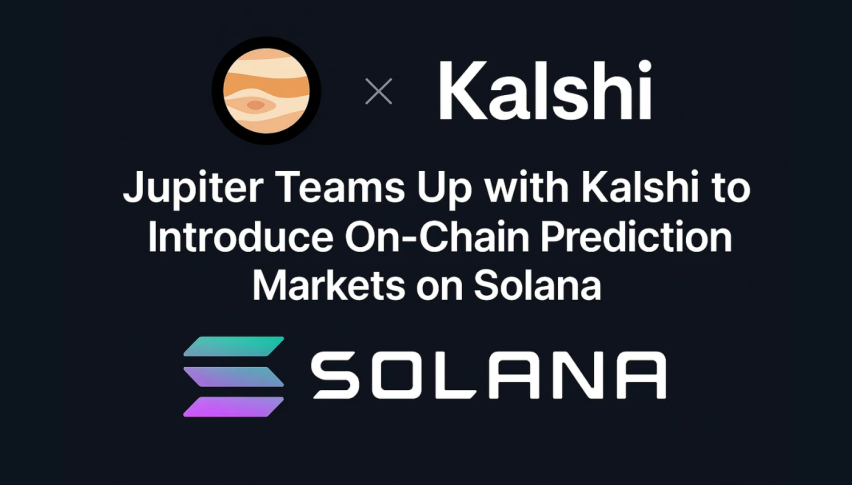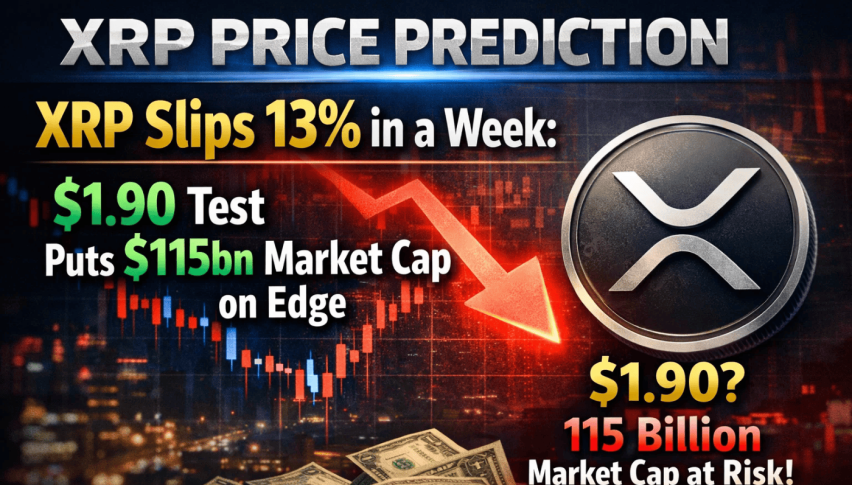Jupiter Teams Up with Kalshi to Introduce On-Chain Prediction Markets on Solana
Jupiter, a Solana-based decentralized exchange aggregator, expects to launch its new native predictions market service...

Quick overview
- Jupiter, a Solana-based decentralized exchange aggregator, plans to launch its native predictions market service in collaboration with Kalshi by the end of the year.
- The beta version of the Jupiter Prediction Market has already begun, allowing users to bet on real-world event outcomes, starting with the Formula One Mexico Grand Prix.
- Jupiter's COO, Kash Dhanda, believes that prediction markets will enhance platform growth and token value, attracting more users and increasing revenue.
- Kalshi currently dominates the prediction market space with 70% of trading volume, while the overall industry is experiencing significant growth.
Jupiter, a Solana-based decentralized exchange aggregator, expects to launch its new native predictions market service, which it is developing with Kalshi, a leader in event-based trading, by the end of the year.
Jupiter said on Wednesday that it has recently released the beta edition of its Jupiter Prediction Market. Kalshi will offer liquidity for Jupiter’s new offering, which allows customers to wager on the outcome of an event.
Max Verstappen, or Lando Norris? Oscar Piastri or George Russell?
Jupiter’s first ever Prediction Market is now LIVE (in beta).
Powered by @Kalshi liquidity, you can trade on the F1 Mexico Grand Prix Winner 👇 pic.twitter.com/HaY8LnsThO
— Jupiter (🐱, 🐐) (@JupiterExchange) October 22, 2025
This new feature enables users to trade on real-world event outcomes right within the Jupiter platform, using liquidity and data provided by Kalshi, a US-regulated event contract exchange governed by the Commodity Futures Trading Commission.
Jupiter has acquired Kalshi’s sporting event data, putting the platform ahead of the competition in terms of volume and market size. Kalshi has focused on sports betting to stay ahead of Polymarket’s political predictions.
Jupiter’s Dhanda Sees Prediction Markets Boosting Platform Growth and Token Value
Jupiter Exchange’s chief operational officer, Kash Dhanda, remarked that Prediction Markets are a powerful progression in the types of assets available on-chain. They are excited to join with Kalshi and introduce them to Solana.
Dhanda stated that prediction markets are rapidly expanding, which will lead to the site obtaining additional users.
Jupiter had 8.4 million active users in the third quarter, a 5% increase over the previous quarter, according to the Q3 tokenholder report.
Dhanda outlined how prediction markets can benefit JUP token holders. The new offering broadens Jupiter’s reach across many consumer categories. Cross-product synergy will increase as more people interact with numerous features.
Prediction markets provide revenue for the site. As the product matures, the long-term worth of token holders increases. Jupiter intends to add other markets based on customer feedback.
Furthermore, he stated that the prediction market would be fully operational sometime in the fourth quarter.
We’ll continue to iterate on the product and increase limitations based on feedback – new markets will be included, and we’ll be preparing for a complete launch in Q4, Dhanda said.
Beta Launch Kicks Off with Formula One Prediction Market
The beta version began with one market. Users are betting on the Formula One driver who will win the Mexico Grand Prix. Since its introduction, the test market has produced more than $120,000 in trade volume.
The beta has a global maximum contract size of 100,000. Each position is limited to 1,000 contracts. These limits are expected to alter as the platform evolves.
Currently, the inaugural test market’s volume has surpassed $100,000, with F1 driver Max Verstappen topping the group, with nearly 46% of users predicting the Dutch-Belgian race car driver to win the event, followed by British race car driver Lando Norris, who has a 27% chance of winning.
U.S. Prediction Market Heats Up as Kalshi and Polymarket Battle for Dominance
The comparatively open approach to prediction markets in the United States has prompted the two biggest platforms to compete for retail attention. The platforms are still experiencing challenges with resolution and Oracle results, with some concerns being debated by the community.
KOLs have actively pushed Kalshi, whereas Polymarket relies on its status as a first mover. Both platforms are attempting to increase their activity through the recently announced micro-betting versions.
Polymarket and Kalshi’s valuations have risen dramatically as traffic on their respective platforms has soared in recent months.
On October 7, Intercontinental Exchange, the parent firm of the world’s largest stock exchange, NYSE, invested $2 billion in Polymarket, valuing it at $9 billion.
Kalshi presently controls 70% of the prediction market based on trading volume. The platform also has 57% open interest. Kalshi has gained traction through its sports betting offerings. Kalshi raised $300 million in its Series D funding round. The firm was valued at $5 billion, and saw participation from Sequoia Capital, Andreessen Horowitz, Paradigm, CapitalG, Coinbase Ventures, General Catalyst and Spark Capital.
These investments come at a time when the prediction market industry, as a whole, is growing rapidly, with weekly trading volume across platforms hitting an all-time high, reaching $2.03 billion for the week ended October 13, according to a Dune dashboard.
- Check out our free forex signals
- Follow the top economic events on FX Leaders economic calendar
- Trade better, discover more Forex Trading Strategies
- Open a FREE Trading Account


